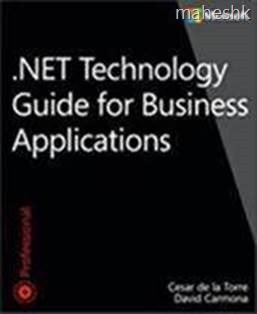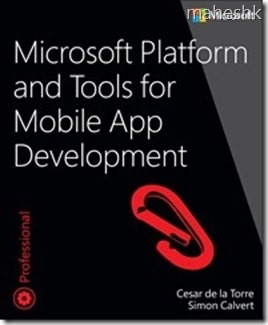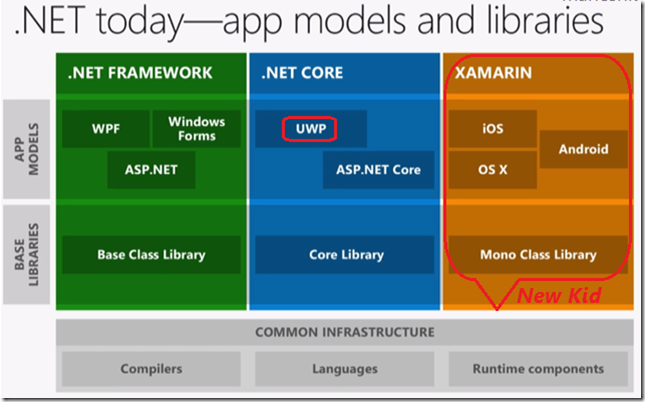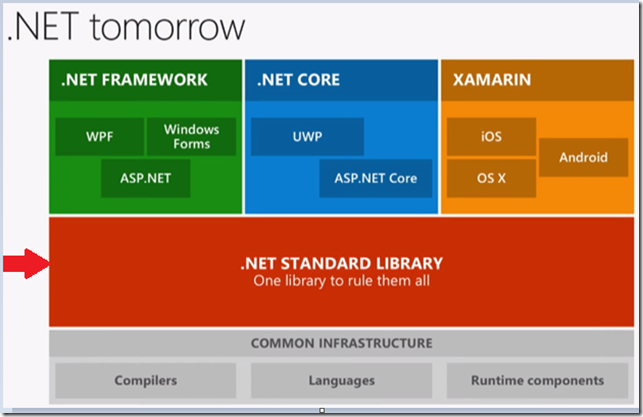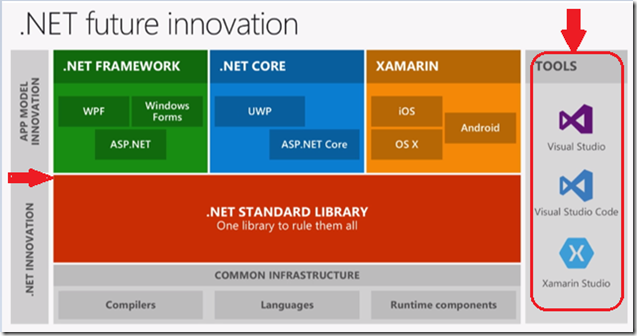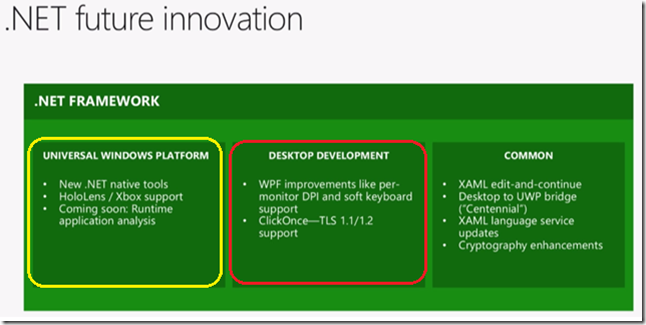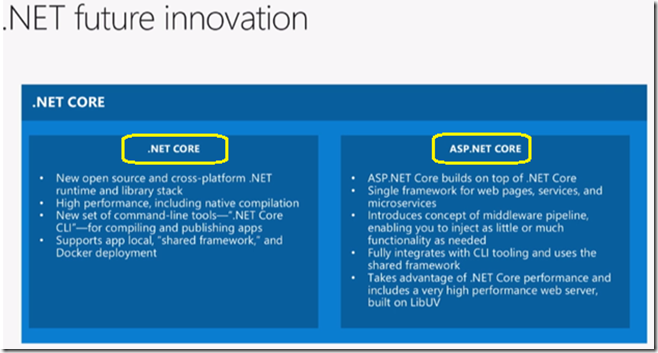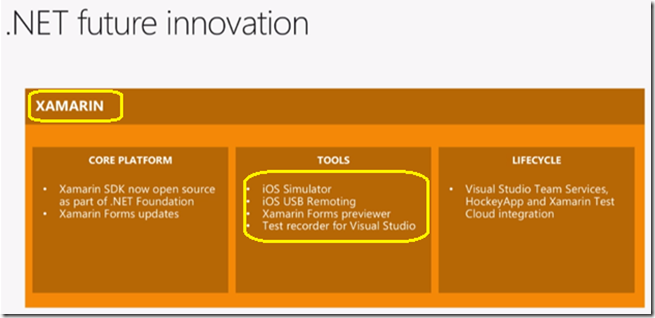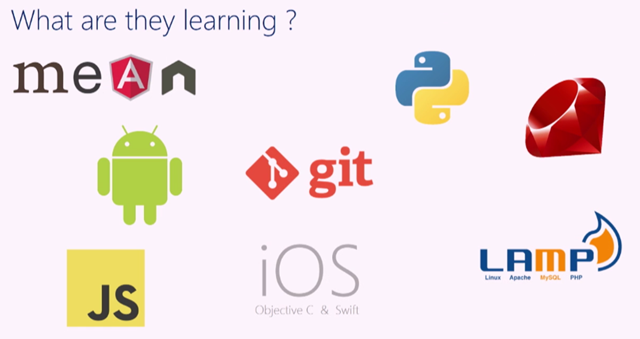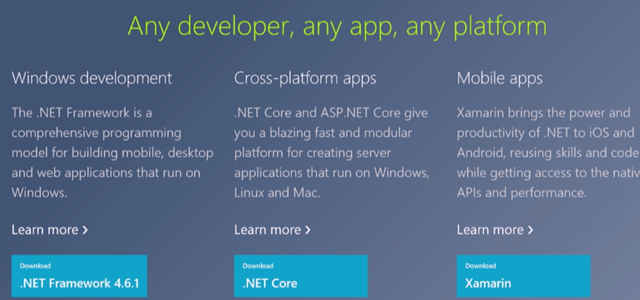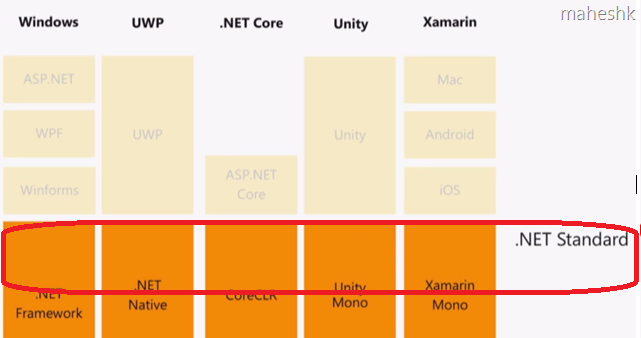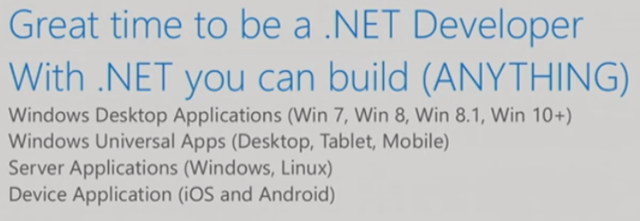.NET today, tomorrow and future..
This blog post was drafted few weeks ago but stuck in the same state because I was not sure what to add or write on top of what we learned from our recent dotnetConf2016 . Any how today I decided to wrap this so that it will be useful for readers. This post is mainly written for .NET developer who wanted to know where we are heading as a community .
Motivation:- If you notice in recent times, there is a bunch of articles targeting .NET platform and its future. Few trolled about WPF and Winform roadmap. I saw most of them are one sided and simply trolled comparing with recent programming stack like LAMP/MEAN as an alternate. But the true story is, .NET is not going to go away. This applies to Java as well. I have my good old friends still doing WPF consulting work for big banking companies and happy with that. We all need “Growth Mindset” in looking at them.
We may have to agree that our recent startup companies are going 100% open source but when it comes to desktop development still WPF rules.The skill what you acquired from WPF is not going to be waste, because UWP is based on XAML. .NET is growing and evolving faster than ever. If you look at our .NET Foundation, it has got some fantastic open source projects run by community. We are breaking the platform dependencies, IIS, underlying win32 thick references which is the great thing for cross platform movement.
Technology:- Things are changing very rapidly when it comes to programming side especially for the web & mobile technologies. As we march towards “mobile first cloud first” world, it makes sense to investment towards platform mobility and in cloud. please note, “mobile first” here is nothing to do with our mobile device. It’s about application mobility – should be able to port our app across the device.
Every week/month we see new set of tools/services/JS framework/scripting things comes out constantly and occupies the head line or top slot in tech conferences. One shouldn't be worrying about new things, we should stay calm and keep learning at least one new languages every year as an investment. If I remember correctly, for last few years we are seeing a trend in IT requirement. Yr 2013 was for Big data, 2014 for Machine learning/deep learning/AI , 2015 for IoT + dockers, again in 2016 seeing BoT, headless servers, nano servers, cognitive services and what not. Btw, Cloud and OSS is the constant thing for last few years and going to be more talked in coming years as well ![]() . It shouldn't be a matter for us to pick up this in couple of weekends if we know the fundamentals of programming & design standards.
. It shouldn't be a matter for us to pick up this in couple of weekends if we know the fundamentals of programming & design standards.
Roadmap:- If we know the technology roadmap in advance, then it is easy for anyone to refer and suggest for customers. I had this .NET roadmap guide constantly referred, forwarded to architects for newer design consideration but the last one published was in the year 2013 and sadly no update after that.
Get our last guide “.NET Technology Guide for business applications” downloaded from- > here
[P.s: Some of them are already outdated]
Few months back, I reached out to Cesar(author of this PDF) seeking clarity on our guidance update. He has promptly shared the preview version but today I see the same guide available for download freely here. What a timing ![]()
Microsoft Platform and Tools for Mobile App Development -
Having said all, Thanks to our recent .net Conference for sharing more clarity around .NET future and developments. If you are .NET developer and not seen the updates from our recent dotnetConf 2016 - then you are in the right place to get the updates through screenshot.
As title says, this is our current landscape. If you look closer, there is “no code sharing” across the platform and also carry the same learning. The new addition to this slide is our “UWP” and “Xamarin” story.
How about .NET tomorrow:- Yes, it allows us to reuse the skills by mastering one/two library not a platform. You can build and reuse the same code across the platform say iOS or Android or to OSX.
Main objective here is to make the “.NET standard library” to grow without updating platforms. It is going to be decoupled so that you can update libraries as you wish.
How is .NET Future looks like: More and more “.NET standard” supported API's are expected in few months. Complex Libs like App Domains, Full Reflection and Binary Serialization are also getting considered. In near future, one should be able to easily move the code b/w .NET framework or .NET Core or .Xamarin.
.NET future- sub slide (.NET Framework) :-
a) C# - C#7, VB 15 is the talk of the town
b) Going forward- new version of windows 10,
c) Winforms/WPF --> Store model
d) Winform/WPF convert to Store apps model, use store to push across the organization
What others are busy learning..
Closing note: & Key take away:
Recommended video:-
.NET Conf Day 1 Keynote – Scott Hunter
.NET Conf Day 2 Keynote – Miguel de Icaza
.NET Conf Day 3 Keynote – Scott Hanselman on The State of .NET
Watch the event videos here:-https://channel9.msdn.com/Events/dotnetConf/2016
Hope this is useful for you..
<update : 6/28/2016>
Another milestone on developer's world: .NET Core & ASP.NET Core 1.0 got released at Red Hat DevNation. https://channel9.msdn.com/Events/Linux/DevNation-2016
.NET Home Page https://dot.net/
.NET Documentation /en-us/dotnet/
Announcement https://blogs.msdn.microsoft.com/dotnet/2016/06/27/announcing-net-core-1-0/
</update>
Comments
- Anonymous
April 14, 2017
Nice article - Anonymous
June 17, 2017
Had same doubts in mind, very well explained.
